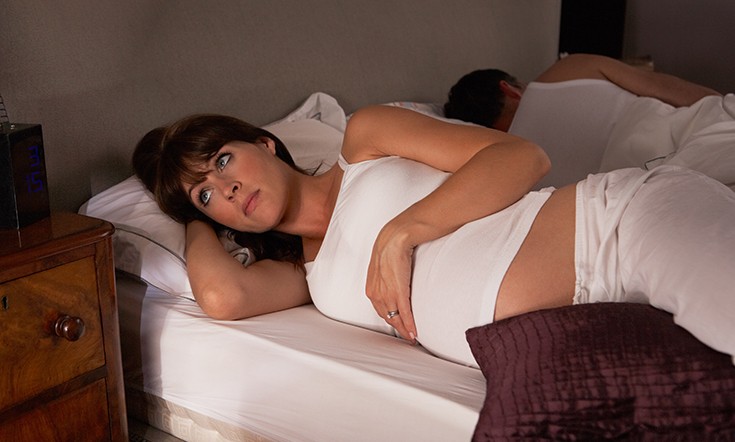

There are those pregnancy symptoms most of us have endured, like morning sickness, cravings, fatigue and lower back pain.
Then there are those most of us have heard about, but many are lucky enough to escape, such as sciatica and haemorrhoids.
But some pregnancy symptoms are so uncommon, many of us haven’t even heard of them, making it difficult to sympathise with someone who has.
This was the situation for Rebekah Rees who suffered from restless legs syndrome during all three of her pregnancies, which despite being a very real sensation, was assumed by some to be all in her imagination.
“During my first pregnancy some of my friends and colleagues thought I was imagining it and the advice from my doctor was to put my feet up and relax,” says Rebekah.
Subsequent pregnancies resulted in more intense symptoms, but fortunately for Rebekah she encountered a midwife who had also experienced restless legs and was able to offer some guidance.
What is restless legs syndrome?
According to Dr Rebecca Harwin, while restless legs is not an uncommon syndrome – occurring in up to 15% of the population – many people have never heard of it.
“Often people don’t seek a diagnosis, as they think it’s trivial and may feel silly reporting it to their health professional,” says Dr Harwin.
So what exactly is it?
“Often patients complain that they can’t get their legs comfortable, or to stay still in bed at night,” says Dr Harwin.
“RLS often occurs in both legs, but can occur in just one.
“It can feel like an ache, a throb, and the legs have an irresistible urge to move and squirm. “Sufferers can need to get up from bed and move about to help ease them.”
Rebekah found that her restless legs tended to happen mostly at night.
“It impacted on my mood, unfortunately.
“The constant and insanely annoying sensation would wear at my patience and I would find almost anything in normal life irritating.
“My poor husband would always try to help by rubbing my feet and legs, but this was often just as annoying as the restless legs themselves.”
What causes restless legs?
The cause of restless legs syndrome is unknown, but may be due related to dopamine function, iron or magnesium deficiency.
“There seems to be a possible familiar component, as RLS is more likely to occur in families. “Restless legs have been significantly associated with older age and body mass index, lower income, smoking, lack of exercise, low alcohol consumption, and diabetes.
“So, it is possible that the increased BMI and reduced exercise common in many pregnancies contributes.
“I feel the increased strain through the pelvis and spine during pregnancy and the resulting altered nerve through the legs contributes to RLS.”
Easing the symptoms
Boosting magnesium, through foods like leafy greens, seeds, beans and avocados and supplementation.
Increasing iron through organic beef, free range eggs, spinach and almonds, maintaining a regular exercise program suitable for your health and fitness levels and avoiding smoking can help too.
The good news is, restless legs syndrome often disappears within four weeks of birth.
“I know it did help knowing that they would end…..eventually.”























